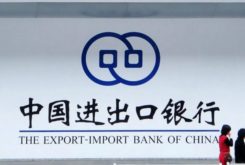The Movimento de Libertação de São Tomé e Príncipe- Partido Social Democrata (MLSTP-PSD), the independence party of São Tomé and Príncipe with close ties to the Communist Party of China, is set to form the country’s new government. That will bring an end to the four-year rule of Patrice Trovoada.
São Tomé and Príncipe is the youngest member of Macao Forum. Its politics has been dominated by two powerful political families. One is that of former president and MLSTP leader Manuel Pinto da Costa, a close ally of China. The other is of Miguel Trovoada, father of Patrice; father and son were behind the creation of a new party, Acção Democrática Independente (ADI).
It was during the presidency of Miguel Trovoada – while Patrice was his adviser – that the government cut diplomatic ties with China, in 1997, and established them with Taiwan. It kept these ties until the end of 2016.
Then, in 2017, according to the decision of Patrice Trovoada, ties with China were re-established. But, according to our sources in São Tomé, the relationship between Patrice Trovoada and China’s diplomats was poor, with neither trusting the other.
In the election of last October, the ADI lost its majority to the opposition — MLSTP-PSD and its allies, MDFM (Movimento Democrático das Forças de Mudança), PCD (Partido da Convergência Democrática) and UDD (União para a Democracia e Desenvolvimento). As a result, Patrice Trovoada decided not to form a new government, despite pressure from within his own party.
The ADI named Olinto Daio as prime minister of a new minority government. This will be rejected by the newly-convened National Assembly, opening the way for the president to invite the opposition to form a new government. It will be led by MLSTP-PSD president Jorge Bom Jesus.
Its success in the election was less due to his own merits and more to popular dissatisfaction with the ADI, due to increasingly severe restrictions on energy supply and commodity shortages in the market, especially rice. The electorate blamed the ADI and the government for these problems.
The opposition coalition wants to form the new government, using the parliamentary majority they now hold. The election has left the MLSTP/ PSD in a promising situation. It is helped by its status as the historical party, linked to elites and traditional families, well established in society and well accepted among regional partners and the international scene. It is also able to have a dialogue with other parties.
But, according to our sources, the new government will not be formed for two months. The vote on ADI´s minority government should take place after the Christmas and New Year holidays. Only in January is the president expected to invite the MLSTP-PSD to form the new government.
It is a coalition of several parties that have often been at odds in the past; their common denominator is their opposition to Patrice Trovoada. So their unity will be tested from the start, with the distribution of cabinet posts and negotiations for a new government.
For Patrice Trovoada, also a prominent businessman, the new political reality represents a substantial loss of political influence in the short term. But ADI is full of loyalists of the Trovoada family. In opposition, it will become the only alternative to the new coalition if it were to fall. And the president, Evaristo Carvalho, has close ties to the Trovoada family.
The decision of the Patrice Trovoada government to restore diplomatic relations with China was forced by the country’s difficult economic and financial situation, a fact he acknowledged himself. Its economy is weak and disorganised and extremely dependent on foreign aid. In 2015, global management consultants McKinsey’s drew up a plan to revive the economy; they identified tourism and agriculture as priorities.
In 2017, Patrice Trovoada expected to boost the economy with Chinese financial support for infrastructure projects, such as US$200 million for airport expansion, US$800 million for a deep water port and US$100 million to rehabilitate the country’s road network.
But these expectations were frustrated shortly after the signing of a co-operation agreement with Beijing in April 2017.
The Chinese took a more cautious approach than expected.
The major deep water port of São Tomé, a flagship project that the government intended to build with the support of China, has been discarded.
Patrice Trovoada later announced his intention to build much smaller infrastructure – a commercial port with fishing piers, with investment of US$70 million.
Local sources told CLBrief that China will provide project; but, in recent contacts with the government, Chinese officials said that they were unable to make a decision on the project in the short term.



